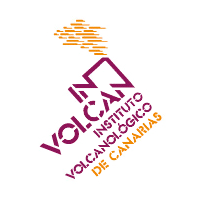Dear colleagues,
Last August we sent you information about the 2020 TENERIFE INTERNATIONAL TRAINING COURSE ON SURFACE GEOTHERMAL EXPLORATION which will take place at Puerto de la Cruz, Tenerife (Canary Islands, Spain) from March 26th to April 1st, 2020.
We have received many applications but we would like to inform you that there are still some places available.
Therefore, we would be grateful if you can remind the students about this important event.
Kind Regards,
Alexis Schwartz
The Canary Islands Volcanological Institute (INVOLCAN) & the University of La Laguna (ULL) are co-organizing the 2020 TENERIFE INTERNATIONAL TRAINING COURSE ON SURFACE GEOTHERMAL EXPLORATION (http://www.involcan.org/tenerife-international-training-course-on-surface-geothermal-exploration/) which will take place at Puerto de la Cruz, Tenerife (Canary Islands, Spain) from March 26th to April 1st, 2020.
Geothermal energy has become a viable alternative and sustainable source of energy in many countries. The energy is commonly manifested on the Earth surface in the form of fumaroles, hot springs, geysers and steaming or altered ground. Economically viable geothermal energy occurs close to the Earth surface where it can be tapped by drilling wells up to 3,000 m below the Earth surface. Geothermal surface exploration invariably entails a multi-geoscientific process, which is aimed at defining the geometry and characteristics of the geothermal system prior to drilling. The scientific disciplines commonly involved are geology, geochemistry, and geophysics. The geological approach generally aims at understanding the various lithologies, volcanological evolution, structural controls, and hydrological regimes of the system. Geophysical exploration helps in determining the geometry (shape, size and depth) of the heat sources, reservoir and cap rock. It also aims at imaging structures that are responsible for the geothermal system, and delineating the areal extent of the geothermal resource. The most commonly used geophysical methods are electromagnetic/electric, gravity, magnetics, microseismicity, seismic tomography and thermal infrared remote sensing. Geochemical exploration relies mostly on sampling and analysis of water, steam and gas from the thermal manifestation in order to characterise the fluids, estimate equilibrium reservoir temperature, determine the origin, evaluate mixing scenarios, determine the suitability of the fluids for the intended use and locate recharge areas and direction of fluid flow. Additional geochemical studies involve soil diffuse degassing measurements aimed at identifying gas leakages that usually mimic active faults and structures. The aim of this course is to introduce graduate students to geophysical and geochemical methods used on surface geothermal exploration by alternating lectures with practical laboratory and field activities.
The prerequisites for attending this course are basic skills in Earth Sciences, as well as a basic knowledge of Mathematics, Physics and Chemistry. The course language will be English and those students who will attend this course will be able to obtain to 2 ECTS (European Credit Transfer and Accumulation System) from the University of La Laguna. The cost of this training course is 650 euros, and it will cover tuition + accommodation for two students in a double room on a half board basis.
A 100 euros pre-registration fee will be charged once you apply for a spot in the course. This fee is non-refundable under any circumstances. If you are sure that you will attend the course, please do not forget to pay your 100 euros pre-registration fee by December 31st 2019, in order to secure your place in the course. A second payment of 550 euros will be charged later on for the full registration.
Please for further information contact Mr. Alexis Schwartz (geotermal.exploration@involcan.org).
2020 Tenerife International Training Course on Surface Geothermal Exploration
-

